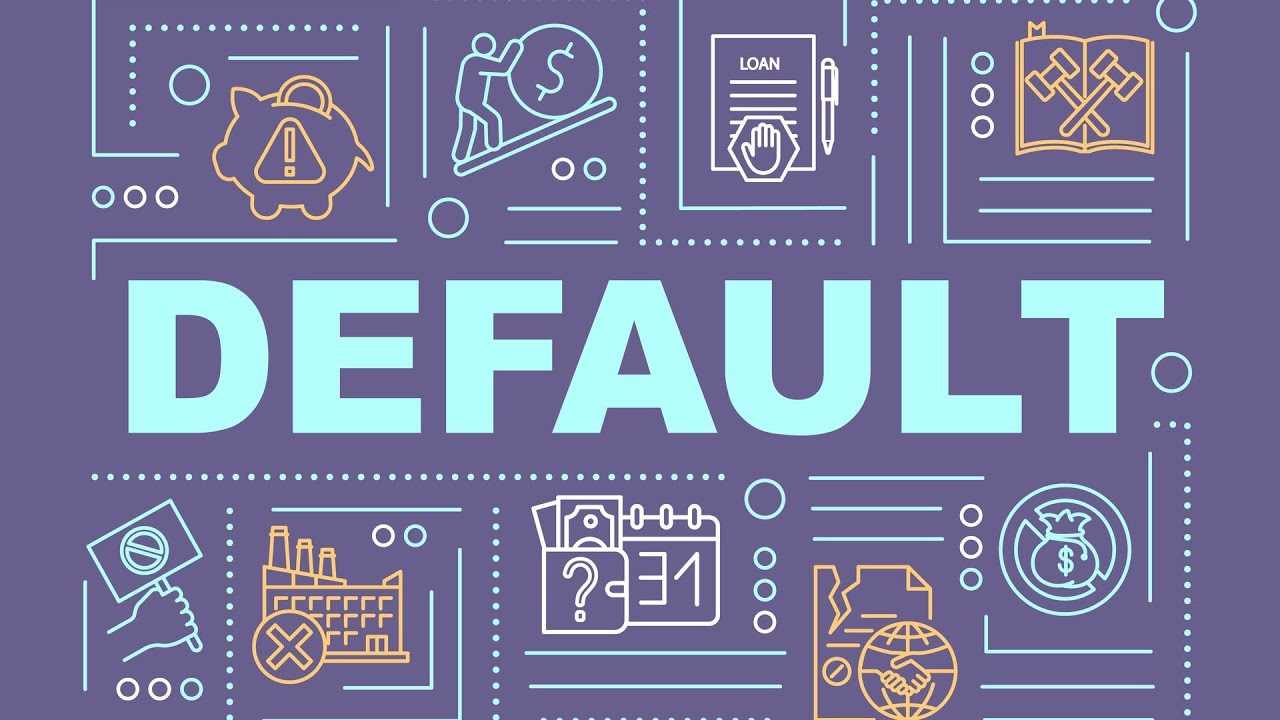Default Meaning and Consequences
Default refers to the failure of a borrower to meet their financial obligations, such as repaying a loan or making interest payments on bonds. When a borrower defaults, it has significant consequences for both the borrower and the lender.
For the borrower, defaulting on a loan can result in a damaged credit score, making it difficult to obtain future credit or loans. It can also lead to legal action and the seizure of assets to repay the debt. Defaulting on bonds can result in a downgrade of the borrower’s credit rating, making it more expensive for them to borrow in the future.
For lenders, default means that they may not receive the full amount of money they are owed. This can result in financial losses and a decrease in the lender’s overall profitability. Lenders may also have to spend time and resources on legal action to try to recover their funds.
The impact of default can be far-reaching and affect various stakeholders in the financial market. When a borrower defaults on their obligations, it can create a ripple effect throughout the economy.
For example, in the fixed income market, defaulting on bonds can lead to a decrease in bond prices. This is because investors become more cautious about lending to borrowers with a higher risk of default. As a result, the demand for these bonds decreases, causing their prices to fall.
Default can also have systemic implications. If a large number of borrowers default at the same time, it can create a financial crisis and destabilize the entire financial system. This was evident during the global financial crisis of 2008, where the default of subprime mortgages led to a collapse in the housing market and triggered a widespread economic downturn.
Examples in the Fixed Income Market
There have been several notable examples of default in the fixed income market. One such example is the default of Argentina in 2001. The country defaulted on its sovereign debt, leading to a severe economic crisis. Investors who held Argentine bonds suffered significant losses as a result.
Another example is the default of Lehman Brothers in 2008. As a major investment bank, Lehman Brothers’ default had a profound impact on the financial markets. It triggered a widespread panic and contributed to the global financial crisis.
For the borrower, default can lead to a damaged reputation and a loss of access to future credit. It can also result in legal action and the seizure of assets to repay the debt. Additionally, default can make it difficult for the borrower to secure financing in the future, as lenders may view them as high-risk borrowers.
For the lender, default can result in financial losses and a decrease in the value of their investment. When a borrower defaults, the lender may not receive the full amount of the principal and interest owed to them. This can have a negative impact on the lender’s overall portfolio performance and can erode their confidence in the fixed income market.
The Ripple Effect

Default in the fixed income market can also have a ripple effect on other market participants and the broader economy. When a borrower defaults, it can create a loss of confidence in the market, leading to increased risk aversion and a tightening of credit conditions. This can make it more difficult and expensive for other borrowers to access financing, which can have a negative impact on economic growth.
Preventing Default
Given the potential consequences of default, it is important for borrowers and lenders to take steps to prevent default from occurring. Borrowers should carefully assess their ability to meet their financial obligations before taking on debt. They should also maintain open lines of communication with lenders and seek assistance if they anticipate difficulties in making payments.
Lenders, on the other hand, should conduct thorough due diligence before extending credit to borrowers. This includes assessing the borrower’s creditworthiness, financial stability, and ability to repay the debt. Lenders should also closely monitor the borrower’s financial health throughout the life of the loan or bond and take appropriate action if signs of financial distress arise.
Examples in the FIXED INCOME Market
Default in the fixed income market refers to the failure of a borrower to make timely payments of interest or principal on a debt security. This can have significant consequences for both the borrower and the lender. Here are some examples of default in the fixed income market:
1. Corporate Bonds

When a company issues bonds to raise capital, it promises to make regular interest payments and repay the principal amount at maturity. If the company fails to meet these obligations, it is considered a default. This can lead to a decrease in the bond’s value and a loss for the bondholders. In severe cases, the company may file for bankruptcy.
2. Government Bonds
Even governments can default on their debt obligations. This usually happens when a country is unable to repay its debt due to economic or political instability. When a government defaults, it can have a ripple effect on the entire financial system, causing a loss of confidence in the country’s economy and leading to higher borrowing costs for the government in the future.
3. Municipal Bonds
Municipalities, such as cities or states, can also default on their bond payments. This can occur when a municipality is unable to generate enough revenue to meet its debt obligations. Municipal bond defaults can have a significant impact on the local economy and may result in higher taxes or reduced public services.
4. Mortgage-Backed Securities

In the aftermath of the 2008 financial crisis, mortgage-backed securities (MBS) became synonymous with default. MBS are investment products that are backed by a pool of mortgages. When homeowners default on their mortgage payments, it can lead to a decrease in the value of the MBS and losses for investors. The subprime mortgage crisis was a prime example of widespread defaults in the MBS market.
5. Sovereign Debt
Sovereign debt refers to the debt issued by governments. When a country defaults on its sovereign debt, it can have severe consequences for the global financial system. This can lead to a loss of confidence in the country’s currency, increased borrowing costs for the government, and a potential contagion effect on other countries.
| Asset Class | Issuer | Default Risk |
|---|---|---|
| Corporate Bonds | Companies | High |
| Government Bonds | Government | Low |
| Municipal Bonds | Municipalities | Medium |
| Mortgage-Backed Securities | Homeowners | Variable |
| Sovereign Debt | Government | Variable |

Emily Bibb simplifies finance through bestselling books and articles, bridging complex concepts for everyday understanding. Engaging audiences via social media, she shares insights for financial success. Active in seminars and philanthropy, Bibb aims to create a more financially informed society, driven by her passion for empowering others.
